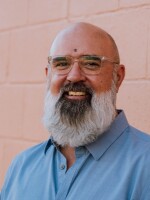The Southwest Colorado Education Collaborative (The Collaborative) provides programs and resources to help students in rural areas explore different pathways as they start their careers. KSJD's Tom Yoder talked with their executive director, Jessica Morrison, about how the collaborative got their start and the many ways they are making an impact on local students.
Under Governor Polis' RISE Grant, $3.6 million was awarded to the Southwest region of Colorado to leaders for them to try different innovative approaches for students in education.
“Students deserve the same access to resources that our Metro students receive in the state. The only way we're going to be able to give that to them in rural communities is if we come out of our silos and build and share resources. That was how The Collaborative was founded,” said Morrison.
The Collaborative is a facilitation process to help K-12 Higher Ed in industry, provide more resources to students, and then develop the future workforce so that students are in careers they're passionate about, invested in, and making a living wage.
The Collaborative operates within five career and college pathways: building trades, environmental, health sciences, education, and hospitality and tourism, including different components within what The Collaborative calls “shared pathways.” These are shared courses where school districts provide course openings to students. So if a student in Dolores is interested in a health sciences course, and that course is an open course offered at the lower school district, they could potentially go to Cortez or Mancos to take that course.
Some of the other successes are around their work-based learning. The Collaborative offers summer institutes that allow students to engage directly with their industry of interest, to learn low-level skills or entry skills about that job to see if they're interested.
The three summer institutes include the Environmental Climate Institute (ECI) at Fort Lewis College. It's a week-long program in June. The second summer institute is building trades, which focuses on HVAC, electrical, and plumbing, and that is at PCC Mancos. The third is Health Sciences Summer Institute in collaboration with Southwest AHEC which is hosted at Fort Lewis College.
“Those summer programs are free for students to attend. We also stipend all students that attend those summer institutes because we know some students in the summer need to have summer jobs to either take care of themselves or financially take care of their family. So we want to remove that barrier,” explained Morrison.
During the school year, The Collaborative works with the school districts to connect industry with students directly through job shadows, half-day activities, hands-on, and brains-on so students can interact with their industry of interest.
“These industries are invested in wanting to grow their future workforce. The Collaborative is a way to connect those two entities. We bring in our higher education partners to provide some form of education outside of high school to be successful in that career and make sure those classes are available,” said Morrison.
The Collaborative offers another resource, Career Launch Southwest, a work-based learning database platform where 60 industry leaders are registered onto the platform, working with all of the region’s school districts to register educators and students now.
“It’s a free one-stop-shop platform that allows all students and educators in our region to log on to our system and connect directly with industry to learn about internships and summer employment. If you're an educator and want an industry leader to come into your classroom and talk about their work, you can go to Career Launch Southwest and look up the specific industry,” Morrison described.
Due to the nationwide teacher shortage and, more specifically, in rural communities, Morrison recently worked with a firm out of Denver to build two recruitment films. These films are for educators, future educators, and teacher retention, and are now being broadcast across the state with Southwest representation.
After receiving a million-dollar congressional direct spending allocation from Senator Hickenlooper's office, another project The Collaborative is looking at is the idea of a manufacturing and training facility in the region that would work alongside industries building manufactured homes. These homes will then be sold for affordable housing and provide training to students interested in the building trades. A portion of those homes would then be sold back just above cost to education institutions for teacher recruitment and retention.
“We want to be sure that all students can align and receive resources regardless of where they live, connecting them directly to industry,” said Morrison.
The Southwest Collaborative is the original start, but since its inception, there are now eight additional rural collaboratives across the state that are watching their model, changing to what fits their rural communities.
“There's this proud proof point for the Southwest. One of the things that I love about this place is that we believe people aren't going to save us. We're going to take care of ourselves. And that has been something that we've been able to cultivate with The Collaborative. This model is being replicated across the state and other rural communities, which is exciting,” said Morrison.



